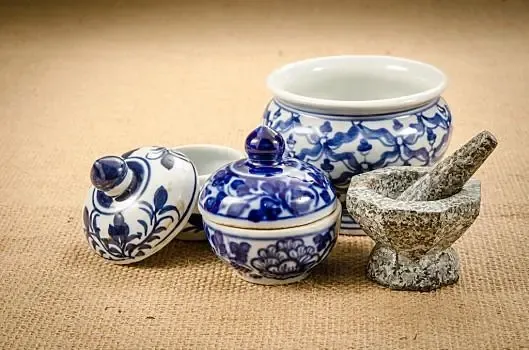Tripolifosfato de sódio: Aumentar a liquidez da lama na produção de cerâmica
Introdução à diversidade dos azulejos e às exigências de produção
Os azulejos estão disponíveis em vários tipos, padrões e especificações, para responder a diferentes estilos de decoração. Esta flexibilidade na seleção aumenta o seu efeito decorativo. O mercado melhora continuamente a cor, a textura e a qualidade dos azulejos, o que leva a uma maior procura de matérias-primas e aditivos. O Tripolifosfato de Sódio (STPP) é um excelente redutor de água que promove uma elevada eficiência, qualidade e baixo consumo de energia na produção de azulejos.
Benefícios da adição de redutores de água na produção de azulejos
A adição de redutores de água como o STPP diminui significativamente a concentração do sistema, formando uma suspensão de pasta cerâmica descentralizada e estável. À medida que a quantidade de redutor de água aumenta, a viscosidade do sistema de lama diminui gradualmente, alcançando um equilíbrio dinâmico dentro de um intervalo de concentração específico.
Funções e vantagens do STPP na indústria cerâmica
STPP actua como um surfactante, agente complexante, suspensão e dispersante na indústria cerâmica. Oferece um desempenho estável, poupança de energia, eficiência e conveniência. Como aditivo cerâmico eficiente e de alta qualidade, o STPP aumenta a liquidez do esmalte através do potencial elétrico do sistema, mantendo uma viscosidade adequada e uma boa liquidez enquanto reduz o teor de humidade. Isto evita problemas de secagem do vidrado, diminui o consumo de energia e reduz os custos de produção.
Melhorar a eficiência da produção de cerâmica com STPP
Na indústria cerâmica, os métodos de secagem por pulverização são normalmente utilizados para produzir pó. Este método produz pó com boa liquidez, adequado para produção em linha de montagem e supressão de jato de alta intensidade. As moléculas de STPP adsorvem-se na superfície das partículas de cerâmica, interrompendo o estado de floculação e assegurando uma boa dispersão e liquidez. Ao reduzir as moléculas hidrofílicas, o STPP liberta o excesso de água adsorvida, aumentando o teor de água livre na lama e obtendo um efeito de redução da água.
Aplicação e benefícios do STPP de cerâmica da Guyue Chemical
O Tripolifosfato de Sódio para Cerâmica da Guyue Chemical é versátil, adequado para azulejos de cerâmica, limpeza sanitária, cerâmica diária, cerâmica artística, cerâmica especial e materiais refratários. Quando adicionado em concentrações de 0,05% a 0,25%, o STPP pode aumentar a resistência do corpo em 15% a 50%, reduzindo as taxas de danos e melhorando a qualidade do produto. Além disso, aumenta a plasticidade do corpo e a estabilidade da suspensão da pasta sem efeitos adversos.
Conclusão
O Tripolifosfato de Sódio é um aditivo valioso na indústria cerâmica, aumentando significativamente a liquidez da pasta e reduzindo os custos de produção. A sua capacidade de manter a estabilidade e melhorar a qualidade do produto torna-o indispensável na produção de cerâmica moderna.
FAQ
O que é o Tripolifosfato de Sódio (STPP)?
O STPP é um redutor de água e aditivo utilizado em várias indústrias, incluindo a cerâmica, para melhorar a liquidez da pasta e reduzir os custos de produção.
Como é que o STPP beneficia a produção de azulejos?
O STPP diminui a concentração do sistema, forma uma suspensão de lama estável e mantém uma viscosidade adequada e uma boa liquidez, reduzindo o teor de humidade e o consumo de energia.
Quais são as vantagens da utilização de STPP em cerâmica?
A STPP oferece um desempenho estável, poupança de energia, eficiência e conveniência, melhorando a qualidade do produto e reduzindo as taxas de danos na produção de cerâmica.
O STPP pode ser utilizado em todos os tipos de cerâmica?
Sim, o STPP é versátil e pode ser utilizado em revestimentos cerâmicos, limpeza sanitária, cerâmica de uso diário, cerâmica artística, cerâmica especial e materiais refractários.
Qual é a concentração recomendada de STPP na produção de cerâmica?
A concentração recomendada de STPP na produção de cerâmica é de 0,05% a 0,25%, o que pode melhorar significativamente a resistência do corpo e a qualidade do produto.

